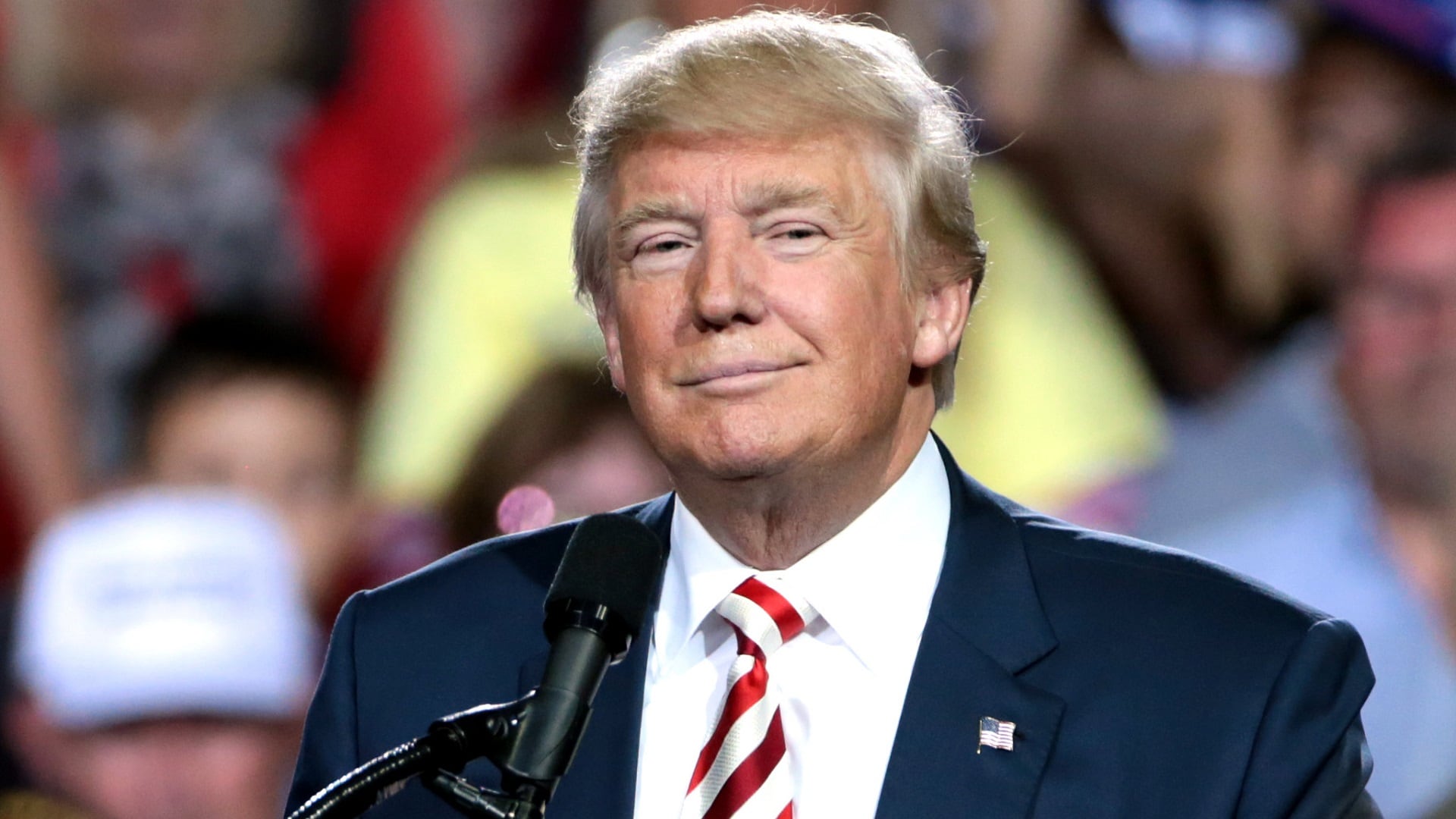Donald Trump’s continuing refusal to commit to backing the eventual Republican nominee has rekindled the idea, previously bandied about in 2016, that he could pursue a third-party challenge. A new analysis says it’s highly unlikely he would have any hope of gaining the presidency that way.
Donald Trump and That Third-Party Idea
Back in 2015, when he first began running for president, Donald Trump was the only candidate for office who refused to pledge that he would support the eventual Republican presidential nominee.
Donald Trump later agreed to that pledge, then backed off of it, but later it became moot when he won the nomination himself.
But his refusal at the time was seen by some as a threat to mount a third-party presidential campaign. At a time when Donald Trump was not part of the Republican establishment and lacked roots in the party, that was something of a rational fear on the Republicans’ part.
Then Donald Trump served a term as president and has since reoriented the GOP around his own views and sensibilities. And running for president again in 2024, Donald Trump has once again refused to pledge to back the eventual Republican nominee. And this has once again led to fears that Trump could try a third-party or independent run for president – much like Theodore Roosevelt did, trying without success to return to the presidency in 1912 with the Progressive “Bull Moose” Party.
Would Trump Do It?
Such a scenario is highly unlikely because Trump is now so enmeshed with the Republican Party in a way he wasn’t in 2016. Should he lose a Republican nominating contest, it’s more likely he would snipe at the Republican nominee from the sidelines, which would form its own headache for the GOP.
At any rate, a new analysis says that it’s almost impossible that Trump could win the presidency again through a third-party run.
According to the Washington Post, which cited a study by the Harvard Journal of Law & Public Policy, Donald Trump would likely be barred from running as a third-party candidate due to “sore loser” laws in many states.
“The Authors have determined that sore-loser laws in 28 states do indeed apply to presidential candidates and that if a candidate fails to win the Republican nomination, sore-loser laws will prevent access to the general election ballot in those states,” the Harvard Journal study said.
“As a result, it would be nearly impossible for Trump to win the general election as a third-party candidate given the limited number of Republican-leaning or ‘tossup’ states where his name would appear on the ballot, which together amount to an insufficient number of electoral votes for a general election victory.”
Such laws apply in 20 states that Trump won in either 2016 or 2020, consisting of 225 electoral votes.
However, per the Post, there is some question as to whether all of state laws apply to presidential candidates, at least according to “third-party ballot-access expert and advocate” Richard Winger. But the Harvard study argues that those laws would indeed prevent Trump from getting on the ballot in enough states.
And it’s not only “sore loser” laws- some states would prevent a candidate from getting on the ballot with one party if they had previously been on it with a different party.
In Montana, per the Post, the law states that a “person seeking office as an independent candidate may not be associated with a political party for 1 year prior to the submission of the person’s nomination petition.”
MORE: Pete Buttigieg Is Destroying Himself
MORE: Are We Watching the End of Donald Trump?
MORE: Liz Cheney: Could She Join the Democratic Party?
MORE: Liz Cheney: The Next President of the United States?
There are other reasons why Trump would not have a path to victory if running as an independent. No Republican would have a chance of winning without South Dakota and Texas, the two states that have ironclad sore-loser laws. And of course, Donald Trump and the eventual Republican candidate splitting the vote would make it practically impossible for either of them to win – and could create enough of a split in enough states to deliver a Democratic landslide in the Electoral College.
Expertise and Experience: Stephen Silver is a Senior Editor for 19FortyFive. He is an award-winning journalist, essayist and film critic, who is also a contributor to the Philadelphia Inquirer, the Jewish Telegraphic Agency, Broad Street Review and Splice Today. The co-founder of the Philadelphia Film Critics Circle, Stephen lives in suburban Philadelphia with his wife and two sons. Follow him on Twitter at @StephenSilver.

